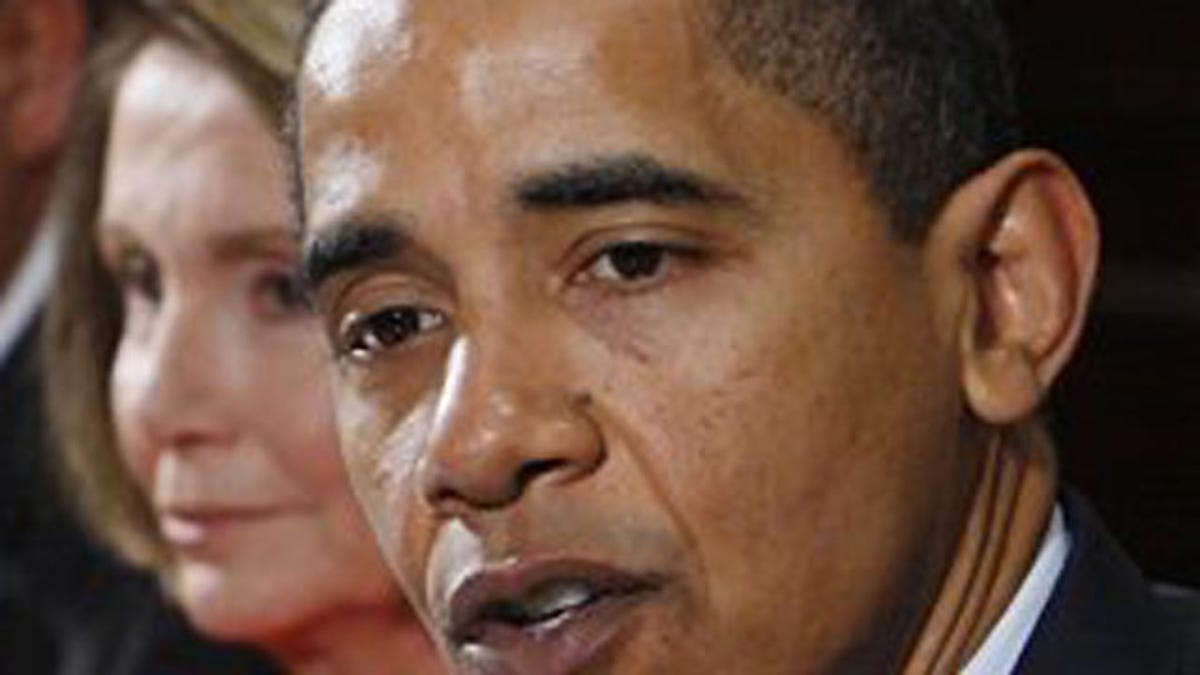
AP
In August, 2007 Senator Barack Obama said in an interview that he had the capacity to unify the country and move it out of what he called "ideological gridlock."
"I think it is fair to say that I believe I can bring the country together more effectively than she can," Obama said (referring to Hillary Clinton).
Fast forward to 2009. We've seen nothing like that rosy picture that was painted by the then presidential hopeful. In that, it's all been evidence to the contrary. Since taking office, it seems Obama has been more focused on advancing his leftist ideology than bi-partisan brokering. And what does that do? It further divides -- not unites -- the electorate.
The president has spent his summer straddling the fence on a public option for his health care overhaul, he's vacillated over whether or not we're in a War on Terror, remains vague about where he stands on prosecuting the CIA and hasn't articulated a clear position on Afghanistan.
President Obama knows that by spelling out where he stands on each one of these topics, he'll light up the left -- something he seems to want desperately to avoid. But he can't do it much longer. This consistent inconsistency has rendered him incompetent when it comes to convincing the country to have confidence in him and he has polarized the nation by triggering unprecedented levels of anger by his actions. The fury is most present in the voting block Obama needs the most: independents.
The numbers aren't pretty. According to Rasmussen Reports, when it comes to health care among those not affiliated with either major party, 55 percent oppose the legislation. That includes 47 percent of independents who strongly oppose it.
Fifty-four percent of voters not affiliated with either party are opposed to the investigation of the CIA. And, most damaging for the White House are the president's overall approval ratings with independents: a lackluster 38 percent.
Then, there's the number one issue that matters most to independents: the ballooning deficit. Obama has completely lost control of his fiscal message, further polarizing the nation.
The deeper the divide grows, the harder it will be for him to accomplish anything on his agenda.
Threatened with the growing consensus that Obama just isn't capable of leading the Democratic Party in a direction that will allow them to remain in power, the president might be getting the message. According to a recent report by Politico:
"Obama is considering detailing his health-care demands in a major speech as soon as next week, when Congress returns from the August recess. And although House leaders have said their members will demand the inclusion of a public insurance option, Obama has no plans to insist on it himself, the officials said."
(Cue record-scratching sound).
After the political equivalent of "Who's on First," is Obama finally adopting the age-old presidential adage: you can screw your base and they won't budge? (Where else are they going to go?) Or is this more of a grey area, triangulating at its best, that will put him at odds with Pelosi and many congressional Democrats?
Like Clinton, his new strategy might entail curbing the kowtowing to the left with a move to the middle. The question is: will it be too late? Unlike Clinton, Obama doesn't have an economy on the rise, or the foil of a Republican-led Congress. -- His numbers are also lower than Clinton's were at this time in his tenure, making it more difficult to rebound.
If he doesn't boot his base soon and concentrate on winning back trust with key voting blocks like independents, he can expect a continued free fall in his approval ratings. And like Clinton, he'll soon get a Republican Congress. That's the thing about the restart button. If you don't hit it, the American people will do it for you.
Andrea Tantaros is a conservative commentator and columnist. Follow her on Twitter: @andreatantaros.
